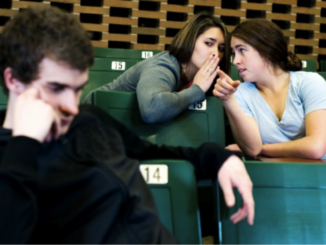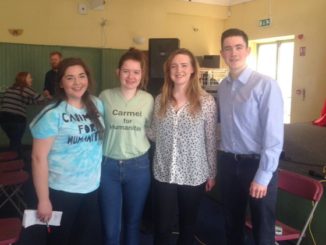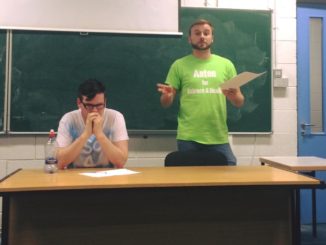
As a students’ union Welfare Officer, I meet people from every walk of student life. From nervous first years to stressed final years, from International students to commuters, students involved in clubs and societies and those not at all. No matter what label we may carry, whether it be male or female, gay or straight, English or Irish, hailing from the sticks or from the big smoke.
At present our society is becoming more aware of the many contributing factors that lead to poor mental health. Young people are often in the most vulnerable category, and these factors have a strong impact on students. A person with a mental health issue is not just the stereotypical ‘outcast’ from society or those who fit into the norm seamlessly. It can affect a person no matter where they fit into the social spectrum.
A mental health illness is unlike any 24-hour bug or flu. The physical impact of the common cold or the flu will see a person in bed for a number of days, but a dose of the right medicines will see them back on their feet by the end of the week.
A mental health illness is more insidiously irregular and can occur once a week, once a month or once a year. However, there are some comparisons we can make when talking about physical health and mental health issues. Similar to when we might incur a minor injury it can often be the case that we convince ourselves we are fine and the injury will heal itself. It is not until the injury has worsened over a period of time or until someone else advises seeking medical help that we realise the seriousness of the injury. In some cases the damage may already be done and it is too late to act on the injury.
The inevitable darkness of discussing mental health can often overshadow the many positive ways in which these issues can be tackled. As the co-ordinator of the SU Mental Health week I have witnessed how it is the little things that go the longest way. These ‘little things’ are not long term solutions, but they have an important part to play in dealing with this form of illness. A simple and sincere ‘How are you?’ is often the question most are looking to be asked. These acts also appear in small gestures such as offering a cup of tea and a quick chat, volunteering in the local community or just helping out. DCU has an array of clubs and societies that offer students activities to take part in but it’s the communal and supportive role they play that makes them an important contributor to building positive mental health. Tackling these issues will never be easy, but we can make it easier by having a more honest and resilient attitude. It is not something that can be tackled alone. It takes a village and a community that is willing to listen and provide small gestures of care, attention and support.
Lorna Finnegan is the Students’ Union Vice-President and Welfare Officer.




Leave a Reply